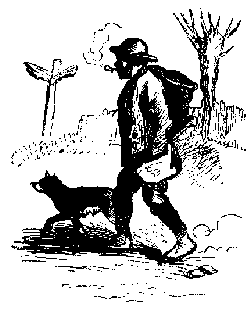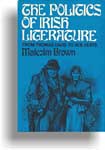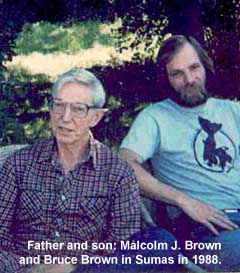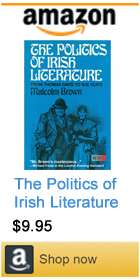Chapter Twenty-one
Enter: W.B. Yeats
IN THE GENERAL election that followed the defeat of the first Home Rule bill, the strength of the Irish party stood unchanged. Gladstone's personal stature was also undiminished, but in only six months since the Liberal victory of 1885, his party's popularity had collapsed. In England, 144 constituencies fell away from Gladstone and swung over to the opposition, giving the Tory-Unionist coalition a flat majority of 118 over Gladstone and Parnell combined. Gladstone resigned. Salisbury had recently imagined that he must wait six years before he could try again, but he was back in as many months. The Tories concluded that the Home Rule issue was a gift sent from heaven, and Chamberlain told John Morley that he "quaked" for fear the Liberal party might some day jettison Home Rule and reappear as a serious political rival.
The Tory intellectual J. A. Froude once philosophized in Carlylese that what Ireland really needed was half a century of "government that governed": "We have professed to govern, and we have not governed." Probing for that corner of the Victorian mind where caning was revered as proper pedagogy, Salisbury now proposed also a government that governed, though for a more modest twenty-year term: "My alternative policy [to Home Rule] is that parliament should enable the government of England to govern Ireland. Apply that receipt honestly, continuously, and resolutely for twenty years, and at the end of that time you will find that Ireland will be fit to accept any gifts in the way of local government or repeal of coercion laws that you may wish to give her. What she wants is governmentgovernment that she cannot hope to beat down by agitation at Westminster. . . ." The most generous interpretation to put on Salisbury's Irish blueprint is contained in the phrase, "killing Home Rule with kindness." The kindness, as we have seen, was among other things a willingness to convey the great Irish estates to the peasantry at the asking price. The barb in the catch phrase is somewhat hidden, but Salisbury did propose to "kill" Home Rule, with or without the kindness of a land-purchasing scheme, by refusing to countenance any further Irish boisterousness.
Parnellites and Liberals were hypnotized by the success of the Tory verbal formulas. Attempting to neutralize the jingo magic in the word "Unionism," they invented a counter slogan, proposing the "Union of Hearts" between the two "sister Kingdoms," and they spoke warmly of the virtue of an exchange of good cheer, courtesy, and culture across the Irish Sea. Irish party wags were put on the speakers' list for all Liberal party rallies in England and displayed as living specimens of the Union of Hearts. A wave of Irish good feeling addressed itself to Englishmen, and the Irish love of moderation was stressed. Gladstone's photograph appeared on the wall in Irish nationalist homes beside the engravings of Emmet and the Chief, and William O'Brien's prose beatified the Grand Old Man "with a face like a benediction and a voice like an Archangel's."
II
In the autumn of 1885 fell the twentieth anniversary of the day when John O'Leary had stood in Green Street Courthouse to hear his sentence pronounced and to pay his respects to judge Keogh and the prosecutor Mr. Barry (now Lord Justice Barry), "that miserable man." His twenty years were up and his exile over. Wearing Rip van Winkle's beard, back he came to Ireland, bringing with him innumerable crates of books. The Dublin of 1885-86 remembered him well and respected him as always. But gripped by the Home Rule fever, Dublin was slow to seek O'Leary's out-of-style opinions. After a rousing welcome home he was shortly forgotten. He reminded himself that after waiting twenty years, he would now have to wait still longer. Parnellism, he said, must have time to "play itself out."
In his habitual unparanoid manner, O'Leary still wished Parnell well, but was skeptical as always of what he could accomplish with heretical non-Fenian tactics. He had discounted each of the stages of Parnell's development since the breakup of the New Departure conferences of 1879. At homecoming, he was still unchanged. We pick up a trace of his 1886 thoughts in a conversation between Barry O'Brien and the famous English radical, John Bright, discussing a letter written by the most honored of the Old Fenians, that is, by O'Leary. The interview proceeded as follows:
- Mr. Bright. I am not afraid that Home Rule would lead to separation. We are too strong for that. But I think that there are certain men in Ireland who would make an effort to obtain separation. I mean what you call Old Fenians. I saw a letter from one of those men a few days ago-he does not know I saw it-a very long letter. I was much interested in it. I should like to know what you are going to do with him. He is an upright, honorable man, ready, I can quite believe, to risk anything for his country. Now, he wants separation, and he wants to obtain it in regular warfare. He is mad, but a madman with a conscience is sometimes dangerous...
-
|
|
Table of Contents
|

|
Astonisher.com is pleased to offer these excerpts from The Politics of Irish Literature by Malcolm Brown...
Praise for
The Politics of Irish Literature |
 |
|
"This brilliant study of the intersection of politics and literature in Ireland amounts to a dazzling portrait gallery. Reading it one feels about one the breath, warmth, and passions of the dead all come alive again."
-- Sean O'Faolain in the Manchester Guardian
"Mr. Brown's masterpiece has made me want to hire a nearby housetop and recite whole chunks to every passerby..."
-- Michael Foote in the London Evening Standard
"The author of the best book on George Moore now gives us what is in all likelihood the best book on the politics of modern Irish literature."
-- Virginia Quarterly Review
|
|

University of Washington Professor Malcolm J. Brown (1910 - 1992) with his son, Bruce Brown, in Sumas, WA, July 1988.
|
Additional reading -- Malcolm Brown's George Moore: A Reconsideration. Also see Bruce Brown's commentary on The History of the Corporation for Malcolm Brown's contribution to that work.
|
|
|






